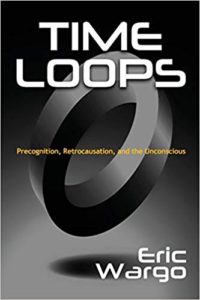The Singularity (Thoughts on Bifurcation, pt. 1)
“Who wants to live forever?” – Queen
Transhumanists plan for the coming Singularity, the threshold of transcendence of biological mortality and of flesh-enslaved consciousness—i.e., posthumanity. Ray Kurzweil for example clasps his hands together and squeals that the first person to be immortal is already alive, and that we can right now (through diet and exercise) try to “live long enough to live forever.”
To be sure, defeating death, escaping the infirmities of the flesh, sounds wonderful. Who doesn’t want to live forever? The trouble is, the advantages conferred by technology are never available to everyone, or even most people, and certainly not everyone all at once. Kurzweil et al.’s death-free posthuman future will not touch all of us at the same speed, although the vague hope is that somehow it will arrive to everyone eventually—trickle-down immortality.
Is there a realistic business model for delivering immortality to the masses?
Somehow space tourism symbolizes, to me, what the post-Singularity world will be like, and why I’m not as excited by it. I’m able to overlook the terrestrial ease and pleasures of the super-rich and not spend every waking moment dwelling on the fact that I’ll never remotely be able to afford a yacht or a castle, but somehow space tourism is in another category. It is a visible symbol of, not merely a luxury, but an actual transcendence that it is simply beyond the reach of all but a very privileged few. And somehow it galls me to my core. I have a hard time accepting that the hyper-privileged can travel into space if they want, and I’ll (probably) never be able to.
What, then, about immortality? That’s way beyond even a trip to the International Space Station.
Since the beginnings of civilization some 10,000 years ago, the rift between the haves and the have-nots has widened and widened. Is there any reason to think the Singularity or any social/technological horizon like that would reverse the trend? Somehow I don’t expect that the first cohort of the Uploaded Super Rich will be eager to share their privilege or even let us know of it. How will the rest of us react to news that Bill Gates uploaded his consciousness to a computer housed in an expensive artificial body? Will we be celebrating with him? Probably not. He’ll have to do it in secret … or retreat to his lunar estate.
The classic sci-fi dystopia is humanity enslaved by our machines. I imagine a slightly different future, in which humanity is enslaved—or not enslaved, just kept perpetually in the workaday status quo—by the Uploaded Super Rich, jealously protecting their immortality. The USRs will retreat to their space stations, finally to the asteroid belt or farther, each one a demigod, each one a Howard Hughes, each one descending into paranoia and finally a lonely machine madness, while the rest of us keep going to work and now and then upgrading to the latest iPhone.




This raises questions about the nature of identity and consciousness. My view is that you can’t “upload” yourself to a machine, even in principle. You might manage to make a fair approximation of a brain state in an artificial “brain”, but silicon chips don’t do what neurons do, let alone the rest of the body. The new “you” would quickly and irretrievably deviate from anything the original would have been or done. It wouldn’t be you; it would be a poor attempt to copy you. The quality of the experience might be very poor without the corporeal substrates that support emotion and feeling.
Legally, the new entities might also find themselves without rights, as a frightened populace voted them out of the human race. I’d be very surprised if this “uploading” caught on.